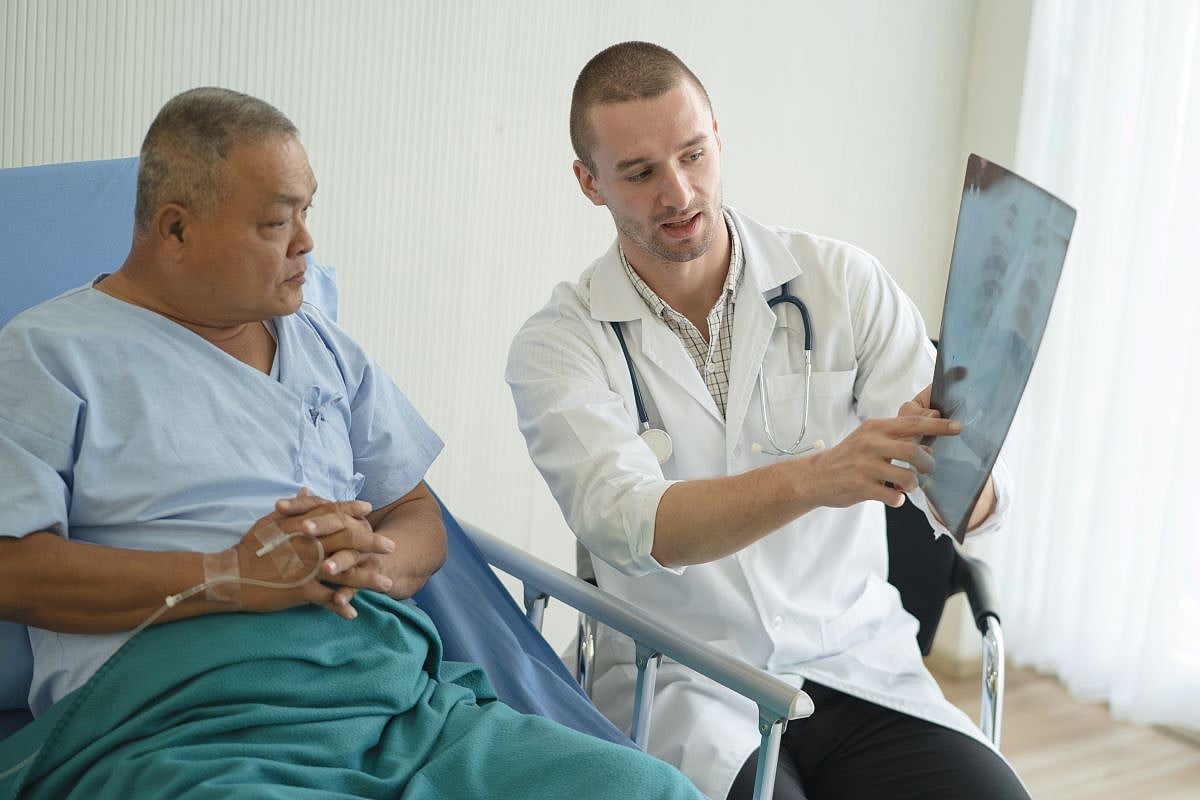Get Healthy!

- Posted October 21, 2025
Bedside Lawyers Help Hospitalized Violence Victims
Hospital patients are used to doctors and nurses visiting their bedside — but new research shows that a lawyer also can help them recover.
Patients with violent injuries often face legal and financial quandaries that can have an impact on their healing.
The nation’s first medical-legal partnership embedded in a trauma center — the Recovery Legal Care program at the University of Chicago Medical Center — is helping patients by managing their legal needs while doctors tend to their health, researchers reported Oct. 16 in JAMA Network Open.
“Most of the time, when people talk about recovery from violent injury, they’re thinking medical care,” senior researcher Dr. Tanya Zakrison, a professor of surgery at the University of Chicago, said in a news release.
“But what if a patient is about to be evicted, or can’t feed their children, or can’t get a job because of an old criminal record?” she said. “Unless we address those financial and legal needs — the root causes that predispose individuals to violence in the first place — healing can’t really happen.”
About 95% of trauma patients had at least one legal need that the program could address, researchers found in their analysis of more than 500 patients.
“Seeing that almost 95% of patients had legal needs was astonishing,” lead researcher Dr. Elizabeth Tung, an associate professor of medicine at the University of Chicago, said in a news release.
“By helping patients secure the resources they need, we’re not just aiding recovery — we’re preventing future harm,” Tung said. “That’s what makes medical-legal partnerships such a powerful tool for health systems.”
Most (89%) needed help with income support and public benefits, followed by housing (64%) and employment (60%).
“These are entitlements they already qualify for, but administrative barriers and systemic issues keep them out of reach,” Tung said of the public benefits.
Over two years, Recovery Legal Care helped secure $1.2 million in payments to patients, most related to public benefits for which they qualified but were not receiving.
The program aims to disrupt cycles of violence by providing patients stability, researchers said.
“When patients lose benefits or face eviction, it increases their risk of being injured again,” Zakrison said. “Helping people access their rights isn’t just financial, it’s about dignity and community safety.”
Results showed that patients from poor neighborhoods had a harder time obtaining benefits, possibly due to a lack of awareness of their entitlements, difficulty navigating complex systems or denials rooted in structural racism.
Overall, the study shows that such medical-legal partnerships can be valuable to patients.
“Legal services aren’t cheap, but they’re far less expensive than repeat trauma care,” Tung said. “Addressing root causes, like housing instability or income insecurity, can prevent re-injury and actually save money long-term.”
Zakrison agreed.
“I would argue this should be standard of care for all trauma centers,” she said. “Just as accreditation requires having an injury prevention program, it should also require a medical-legal partnership.”
The team is now conducting a clinical trial to evaluate the impact of medical-legal partnerships on rates of re-injury and patients’ long-term outcomes.
“We’ve already shown the financial benefit,” Zakrison said. “Now we’re studying whether Recovery Legal Care reduces re-injury rates — and early data suggests it does. But we also want to hear directly from patients: Did this make a difference in your life? What else do you need? That feedback will help us make the program even stronger.”
More information
Legal Aid Chicago has more on the Recovery Legal Care program.
SOURCE: University of Chicago, news release, Oct. 16, 2025


